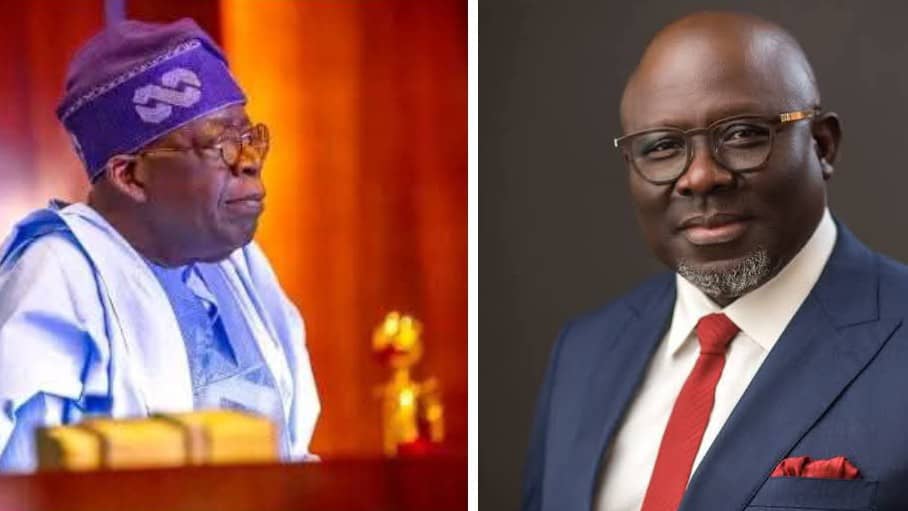STOP BLAMING TINUBU: HOLD YOUR GOVERNORS ACCOUNTABLE – DELTA STATE ALLOCATIONS RESEARCH CENTRE
By Engr. Felix Akpoyibo
Director General DSARC
The narrative in Nigeria often paints the federal government, currently led by President Bola Ahmed Tinubu, as the source of the nation’s woes. However, a closer look at the numbers reveals a different story—particularly in Delta State, where the Delta State Allocations Research Centre (DSARC) is set to expose the mismanagement of funds by state and local leaders. Over the past 10 years (120 months), Delta State has received a staggering N2,744,690,000,000 (Two trillion, seven hundred and forty-four billion, six hundred and ninety million Naira) from the Federal Government of Nigeria through the Federation Accounts Allocation Committee (FAAC). Yet, the infrastructure projects on the ground during this period amount to less than N200 billion—a paltry sum representing under 10% of the total federal revenue received, excluding the state’s internally generated revenue (IGR). This raises a critical question: where has the rest of the money gone?
#### Federal Allocations to Delta State (2015–2024)
Here’s a breakdown of the federal allocations Delta State received over the last decade:
– **2015**: N159.8 billion
– **2016**: N148.2 billion
– **2017**: N186.6 billion
– **2018**: N213 billion
– **2019**: N214.4 billion
– **2020**: N186.83 billion
– **2021**: N240 billion
– **2022**: N348 billion
– **2023**: N483.57 billion
– **2024**: N564.29 billion (projected)
– **Total**: N2,744,690,000,000
These figures, drawn from reliable data up to April 9, 2025, highlight the immense resources funneled into Delta State, largely bolstered by its status as a leading oil-producing state benefiting from the 13% derivation fund. Yet, despite this influx of cash—amounting to roughly N22.87 billion per month over 120 months—infrastructure development remains woefully inadequate. The DSARC estimates that less than N200 billion has been visibly invested in tangible projects like roads, bridges, and public facilities over this period. This is less than 10% of the N2,744,690,000,000 received, leaving over N2.544 trillion unaccounted for in terms of impactful development.
#### Political Maneuvering and Mismanagement
The People’s Democratic Party (PDP) has governed Delta State for much of this period, with leaders like Governors Ifeanyi Okowa (2015–2023) and Sheriff Oborevwori (2023–present) overseeing the state’s finances. Now, as scrutiny intensifies, reports suggest that some PDP governors in the Niger Delta, including Delta State, are contemplating defecting to the All Progressives Congress (APC)—the party of President Tinubu. The DSARC views this as a calculated move to shield themselves from accountability for the fraud and mismanagement of public resources. By aligning with the ruling party, these leaders hope to deflect blame onto the federal government and Tinubu, despite their own failures to deliver development to their people.
President Tinubu has performed admirably since taking office, implementing bold economic reforms and pushing for national progress. However, his efforts are undermined by state-level inefficiencies. The DSARC argues that Tinubu’s administration could further secure its legacy by establishing a Nigeria Farmers and Forest Defence Force to tackle terrorism and banditry nationwide, ensuring farmers can work safely and boosting food security. This would address a key national challenge, but it does not absolve state governors of their responsibility to utilize federal allocations effectively.
#### The Role of Local Governments
Beyond the state level, Delta State’s 25 local government areas have collectively received allocations for 3,000 months (120 months x 25 LGAs) over the past decade from the federal government. These funds, intended to drive grassroots development, have similarly failed to translate into meaningful progress. The DSARC is preparing to publish a detailed exposé of these 3,000 monthly allocations, alongside the 120 monthly state allocations, to reveal the extent of the “loot” and hold local and state leaders accountable.
#### Looking Ahead: IGR and Accountability
In its upcoming releases, the DSARC will shift focus to Delta State’s internally generated revenue (IGR) over the same 120-month period. This analysis aims to provide a fuller picture of the state’s financial resources and demonstrate to the people of Delta State—and the broader Niger Delta—that their governors, not Tinubu or the federal government, are the primary obstacles to progress. While federal allocations are substantial, the state’s IGR could further amplify available funds if properly harnessed and accounted for. Instead, the evidence points to systemic mismanagement at the state and local levels.
#### A Call to Action
The DSARC’s mission is clear: stop blaming Tinubu and start holding Delta State’s governors and local leaders accountable. The numbers don’t lie—N2,744,690,000,000 over 10 years should have transformed Delta State into a model of development. Instead, less than 10% has been visibly invested in infrastructure, while political elites maneuver to evade responsibility. As the Centre launches its detailed reports on the 120 monthly state allocations and 3,000 local government allocations, the people of Delta State will have the tools to demand answers. It’s time to shift the spotlight from Abuja to Asaba and the local councils—the real culprits in this tale of squandered potential.



